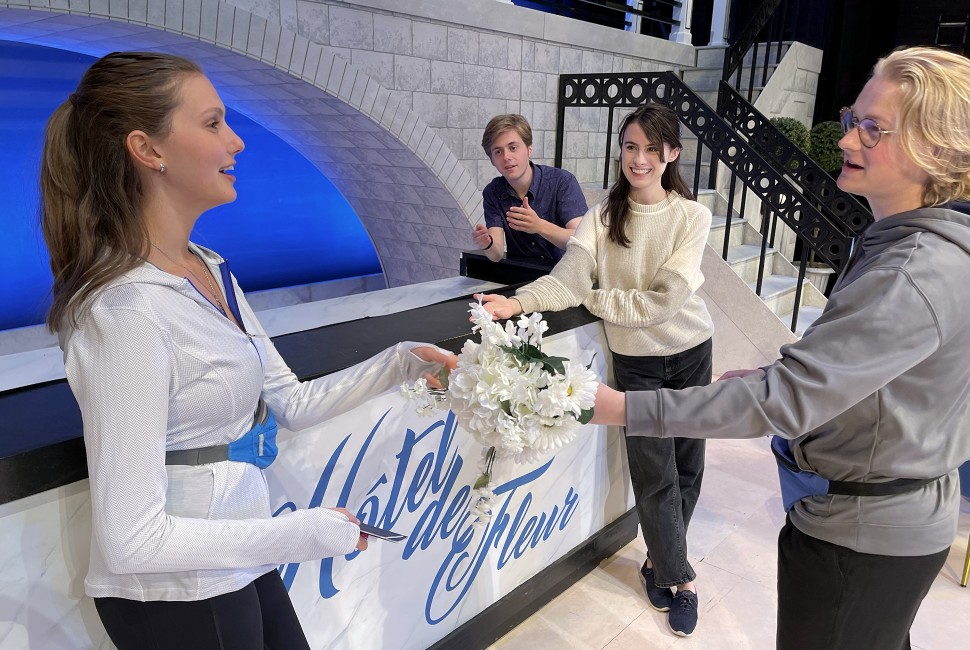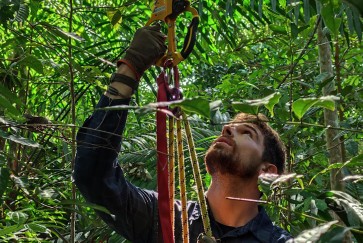Established in 1929, Northwestern’s Waa-Mu Show is the pinnacle of collegiate musical theater, a nationally recognized production that offers students the unique opportunity to own and operate the show from inception to opening night.
This year’s show, “Romance en Route,” opens tonight at Cahn Auditorium and runs through May 7. It follows six romantics on a journey through love, loss, heartbreak and self-discovery in Paris.
School of Communication students Madeline Oberle and Mitchell Huntley are two of the four Waa-Mu co-chairs this year (Frances Brenner and Daniel Maton are the other two). And, while they’ll be watching as the magic unfolds, the duo won’t actually be on stage. Instead, they are responsible for doing much of the work that the audience doesn’t see — work that makes the show possible.
From crafting the actors’ lines to finalizing the budget, they have had their hands full with all things “Romance en Route,” while also juggling the demands of being seniors in college.
Northwestern Now sat down with Oberle and Huntley to learn more about this year’s production, the impact of being involved and how they played a central role in making the show possible.
How would you describe your roles in this year’s show?
Oberle: Co-chair is a fancy word for a combination between a producer, a theatrical producer and then also a student liaison. The Waa-Mu show is co-produced through us and the Wirtz Center, and we could not put on this show without their help. But we also do a lot more of the nitty gritty things like being in the rehearsal room and getting students involved and ready for the show.
We have so many more people that work on the show than just the actors. We manage our designers, and we have a giant business team, we have a writing team... all of that comes through us, and we manage most of that with the guidance and oversight from the Wirtz Center.
Huntley: Along with being a co-chair, my background is being a writer. Waa-Mu is one of the reasons I came to Northwestern. There isn't any other college in the U.S. where you can really do something as insane as writing and producing a show in one year.



